February 19, 2021
Search Results for: office of the future
February 11, 2021
Firms split furniture budgets between home and office
by Jayne Smith • Flexible working, News, Working lives
 As lockdown looks set to be extended until mid-March and many business professionals continue to work remotely, a new study by lighting supplier Ultra LEDs claims that only now are workers investing in their home office as they plan for the future. (more…)
As lockdown looks set to be extended until mid-March and many business professionals continue to work remotely, a new study by lighting supplier Ultra LEDs claims that only now are workers investing in their home office as they plan for the future. (more…)
January 26, 2021
Tech and finance firms opt to keep offices closed
by Jayne Smith • Business, News, Working culture
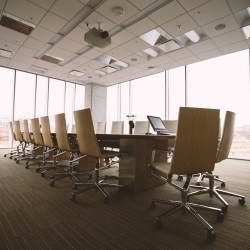 Expenses app, ExpenseOnDemand, has published new data which claims to highlight how businesses in different sectors are planning office returns in 2021. The majority of businesses across many sectors have stated offices will reopen this year at some point. (more…)
Expenses app, ExpenseOnDemand, has published new data which claims to highlight how businesses in different sectors are planning office returns in 2021. The majority of businesses across many sectors have stated offices will reopen this year at some point. (more…)
January 25, 2021
The future of work is hybrid with a firm focus on employees
by Jayne Smith • Flexible working, News, Wellbeing, Working lives
 Companies are searching for ways to reinvent the office and give employees reasons to return to their workplace and a new report by JLL says the focus must be on the workforce. The report, Reimagine: the new future of work to shape a better world predicts that the future of work will involve companies prioritising the health, wellness and mental well-being of employees. (more…)
Companies are searching for ways to reinvent the office and give employees reasons to return to their workplace and a new report by JLL says the focus must be on the workforce. The report, Reimagine: the new future of work to shape a better world predicts that the future of work will involve companies prioritising the health, wellness and mental well-being of employees. (more…)
December 17, 2020
Organisations weigh up options to make workplace fit for the future
by Neil Franklin • News, Property
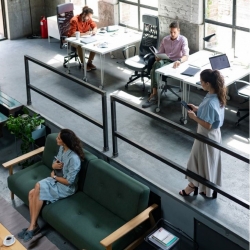 Avison Young, realestateworks and HLM Architects have launched a new report that assesses the impact of this year’s pandemic on workplace and corporate real estate strategies in the longer-term. Over 100 private and public sector companies were asked about their evolving approach to working culture, office design and portfolio strategies in the context of multiple forces of change, including greater resilience, the decarbonisation agenda, personalisation, remote working and the integration of the physical and virtual workspaces. (more…)
Avison Young, realestateworks and HLM Architects have launched a new report that assesses the impact of this year’s pandemic on workplace and corporate real estate strategies in the longer-term. Over 100 private and public sector companies were asked about their evolving approach to working culture, office design and portfolio strategies in the context of multiple forces of change, including greater resilience, the decarbonisation agenda, personalisation, remote working and the integration of the physical and virtual workspaces. (more…)
December 8, 2020
Plans for 2 million sq. ft of offices in South East England
by Jayne Smith • Business, News, Property
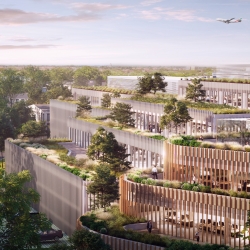 The Commercial Park Group, a partnership between Sir Robert McAlpine and the John Baker Group, has announced it will invest £200 million to kick-start developments of two million sq ft of new offices across locations in the south east of England. (more…)
The Commercial Park Group, a partnership between Sir Robert McAlpine and the John Baker Group, has announced it will invest £200 million to kick-start developments of two million sq ft of new offices across locations in the south east of England. (more…)
November 24, 2020
Covid-19 will transform the way technology is used in offices
by Jayne Smith • News, Technology
 A new paper from the British Council for Offices outlines how technology is being used in offices to combat Covid-19. While offices may be shut in the UK until 2nd December at the earliest, the paper outlines how the sector is adapting and embracing a range of new technology to ensure that offices can comply with hygiene and social distancing measures. (more…)
A new paper from the British Council for Offices outlines how technology is being used in offices to combat Covid-19. While offices may be shut in the UK until 2nd December at the earliest, the paper outlines how the sector is adapting and embracing a range of new technology to ensure that offices can comply with hygiene and social distancing measures. (more…)
November 23, 2020
Focus shifts to refurbishment as new office building in London falls by half
by Neil Franklin • News, Property
 The construction of new offices in central London has declined by half (50 percent) in six months as developers and occupiers shift their focus to refurbishment, according to Deloitte Real Estate’s latest London Office Crane Survey. The crane survey analysed office building data over the six months to 30 September, and included a poll of London’s biggest developers conducted at the end of September. The total office space under construction in central London is now 15.1 million sq ft. This is similar to the level recorded in the previous survey (15.3 million sq ft, the highest since 2002) as developments are now taking longer to complete. (more…)
The construction of new offices in central London has declined by half (50 percent) in six months as developers and occupiers shift their focus to refurbishment, according to Deloitte Real Estate’s latest London Office Crane Survey. The crane survey analysed office building data over the six months to 30 September, and included a poll of London’s biggest developers conducted at the end of September. The total office space under construction in central London is now 15.1 million sq ft. This is similar to the level recorded in the previous survey (15.3 million sq ft, the highest since 2002) as developments are now taking longer to complete. (more…)
November 20, 2020
The future of workplace will be shaped by sustainability
by Jayne Smith • Environment, News, Working culture
 Dr Leyla Acaroglu, and intranet provider, Unily, have launched the Future of Workplace Sustainability Report, which explores how sustainability, climate change and COVID-19 are shaping the future of the workplace. We are living in a time of great and immediate change, and COVID-19 and climate change are just two of the most obvious forces impacting our way of life. (more…)
Dr Leyla Acaroglu, and intranet provider, Unily, have launched the Future of Workplace Sustainability Report, which explores how sustainability, climate change and COVID-19 are shaping the future of the workplace. We are living in a time of great and immediate change, and COVID-19 and climate change are just two of the most obvious forces impacting our way of life. (more…)
November 17, 2020
Unused office space could cost London businesses almost £13 billion
by Jayne Smith • Business, Facilities management, News, Property
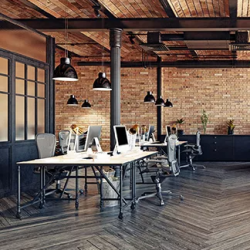 Unused office space after coronavirus could cost London-based businesses almost £13 billion according to a new report by Space Three Two, a new office timeshare marketplace born out of lockdown. According to a survey of London office workers, employees want to spend an average of 2.7 days back in the office once all Covid-19 restrictions have been lifted. 1 in 10 workers said didn’t want to go back to the office at all. (more…)
Unused office space after coronavirus could cost London-based businesses almost £13 billion according to a new report by Space Three Two, a new office timeshare marketplace born out of lockdown. According to a survey of London office workers, employees want to spend an average of 2.7 days back in the office once all Covid-19 restrictions have been lifted. 1 in 10 workers said didn’t want to go back to the office at all. (more…)
November 11, 2020
UK office design should look to Europe for inspiration
by Ollie Plastow • Comment, Workplace design
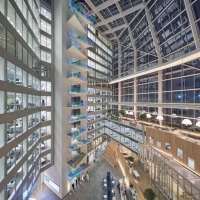 The word ‘office’, based on the Latin term officium, wasn’t originally used to describing a building, or a space: instead it was used primarily as a term for a position: a role that was occupied by a person. So it seems only right with this etymology to take inspiration from Europe. And when considering office design, use that inspiration to build workspaces that reflect the needs of the people working within them. (more…)
The word ‘office’, based on the Latin term officium, wasn’t originally used to describing a building, or a space: instead it was used primarily as a term for a position: a role that was occupied by a person. So it seems only right with this etymology to take inspiration from Europe. And when considering office design, use that inspiration to build workspaces that reflect the needs of the people working within them. (more…)




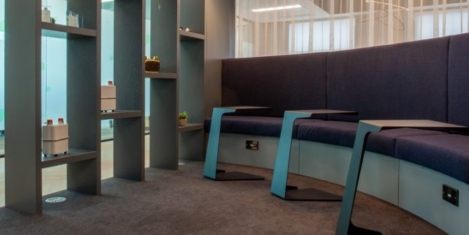
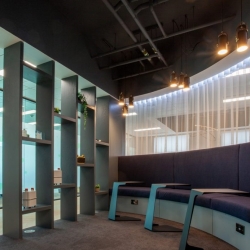 New data from real estate consultancy
New data from real estate consultancy 
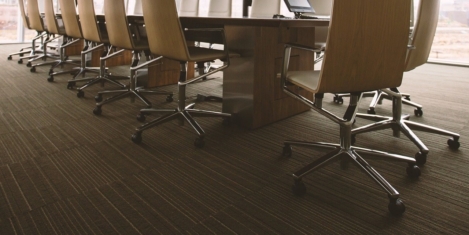

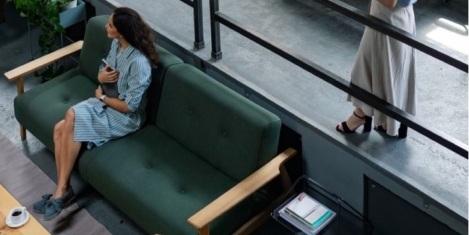



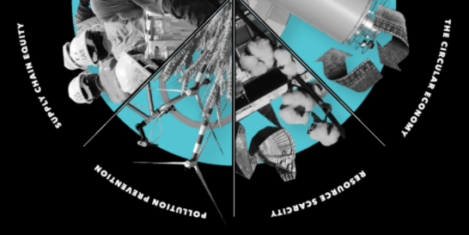
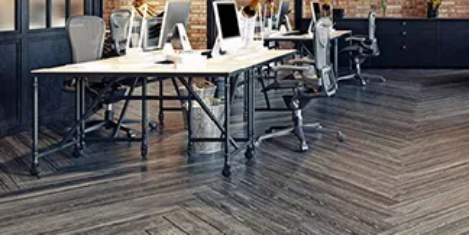









February 11, 2021
The future workplace will only thrive with social and customer experience at its heart
by Sonia Brown • Comment, Workplace design